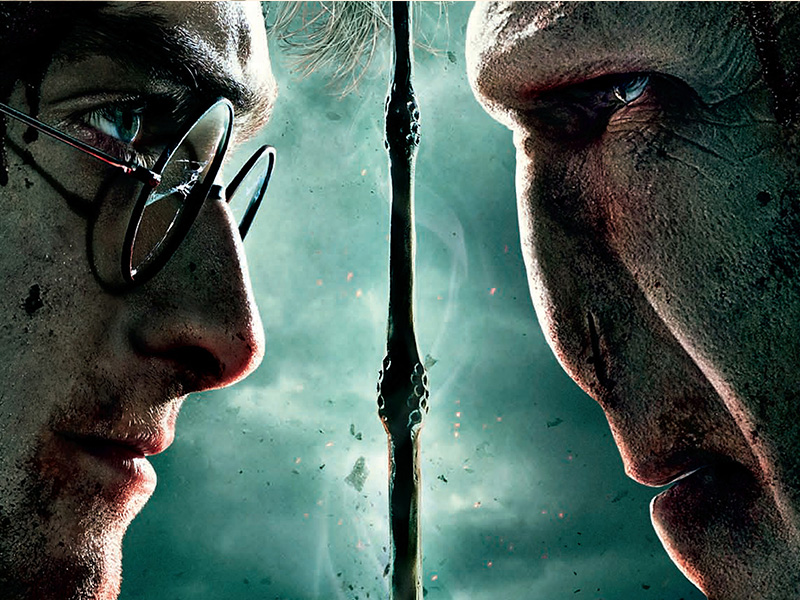Earlier this week, JK Rowling, author of the Harry Potter series, signed a letter that opposes the boycott, divestment and sanctions (BDS) movement against Israel.
“If any effects are felt from the proposed boycott, it will be by ordinary Israelis, many of whom did not vote for Mr. Netanyahu,” Rowling wrote. “Those Israelis will be right to ask why cultural boycotts are not also being proposed against – to take random examples – North Korea and Zimbabwe, whose leaders are not generally considered paragons by the international community.”
Rowling was one of over 150 signatories to a letter published in the Guardian, alongside Melvyn Bragg, Hilary Mantel and Simon Schama. The letter is in response to an initiative calling for a cultural boycott of Israel, noting that “cultural boycotts singling out Israel are divisive and discriminatory, and will not further peace.”
The letter also introduces the Culture for Coexistence, a new network that will aim to “inform and encourage dialogue about Israel and the Palestinians in the wider cultural and creative community.”
Unsurprisingly, the move sparked backlash, particularly on social media, with one Twitter user claiming Rowling “ruined” his childhood.
good morning jk rowling is a zionist and my childhood is ruined
— ari (@_aryang) October 22, 2015
Why JK Rowling is wrong and culture must not be exempted from any boycott of Israel https://t.co/m2yU0l2Oz8
— OccuWorld (@OccuWorld) October 28, 2015
@Mondoweiss JK Rowling sides with the Voldemort of the Middle East. — Mami Mermelada (@mami_mermelada) October 24, 2015
In response, Rowling wrote a lengthy TwitLonger post Tuesday explaining why BDS would be more detrimental for the peace process than beneficial. “What sits uncomfortably with me is that severing contact with Israel’s cultural and academic community means refusing to engage with some of the Israelis who are most pro-Palestinian, and most critical of Israel’s government. Those are voices I’d like to hear amplified, not silenced. A cultural boycott places immovable barriers between artists and academics who want to talk to each other, understand each other and work side-by-side for peace,” she wrote. She also used her Harry Potter characters to illustrate her point, taking a scene from her novel, Harry Potter and the Deathly Hallows, to explain how art and literature can bring forth “immense power for good in this world.” “Dumbledore is an academic and he believes that certain channels of communication should always remain open,” Rowling wrote. “It was true in the Potter books and it is true in life that talking will not change willfully closed minds. However, the course of my fictional war was forever changed when Snape chose to abandon the course on which he was set, and Dumbledore helped him do it. Theirs was a partnership without which Harry’s willingness to fight would have been pointless.” Rowling commented that while the “Palestinian community has suffered untold injustice and brutality” and that holding the Israeli government accountable would “satisfy the human urge to do something,” she believes that a “cultural boycott places immovable barriers between [people] who want to talk to each other, understand each other, and work side-by-side for peace,” which led some Twitter users to claim that she’s “anti-Israel.”
Not sure why I’m sad that JK Rowling is anti-Israel but I am. I woman I held to higher levels of morality has let me down. — Sammy Korc (@sammykorc511) October 28, 2015
Read carefully.. She’s anti-Israel https://t.co/6BiGXdwicS — SBCInteriors (@SaraChwatt) October 28, 2015
@jk_rowling Had no idea U r anti-Israel. And after all those books and movies I purchased for my children! U blame Israel instead of Hamas! — LadyConserv (@LadyConserv) October 28, 2015
In the wake of Rowling’s insistence that a cultural boycott of Israel would be counterproductive, a YouTube user and Harry Potter fan has created a video that paints a different picture. User Rachel L’s video, titled Harry Potter and the Threats to Israel, uses footage from the movies to compare the characters’ plight to the real-life challenges Israelis have faced on a daily basis, particularly over the last six weeks in the midst of numerous stabbings and shootings.
“This is a short video depicting the lethal actions of the terrorist organization Hamas against Israel, the bias of world leaders and the media in response to Israel’s self-defense, and the threat posed by the Iran deal to Israel and the world,” Rachel L writes in the video’s description.
While it’s very unlikely that Rowling would agree with all of her points, you can watch the video below and judge for yourself:
